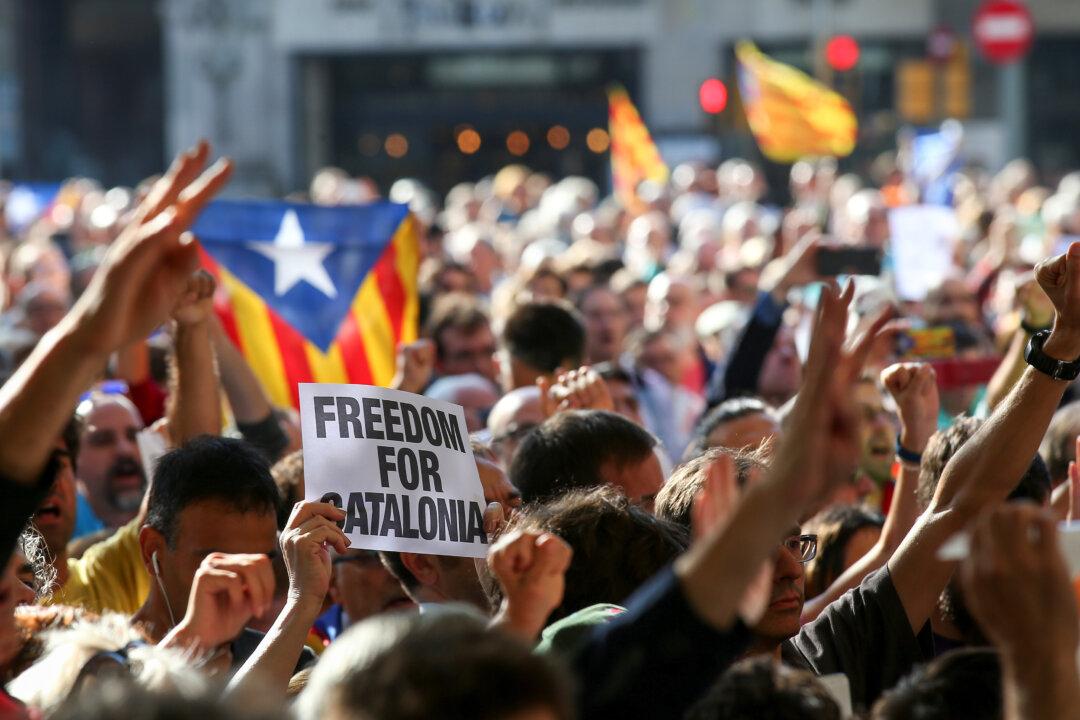MADRID/BARCELONA—Spanish police raided Catalan government offices and arrested officials on Wednesday to halt a banned referendum on independence, an action the regional president said meant Madrid had effectively taken over his administration.
Hundreds of protesters gathered outside the regional government offices in the center of Barcelona’s tourist district, waving the red-and-yellow Catalan flag and chanting “Occupying forces out” and “Where is Europe?”.





